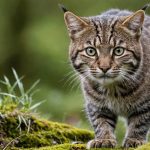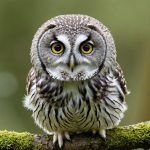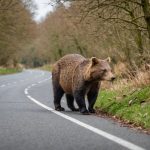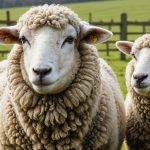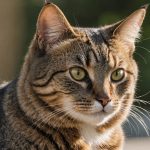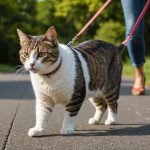Owning a pet owl in the UK is a fascinating but complex endeavor. Legal requirements and regulations often leave potential owners overwhelmed. Understanding these essential guidelines can help you navigate the intricate legal landscape and ensure both your owl's well-being and your compliance with the law. This guide breaks down what you need to know about permits, housing, and care, allowing you to enjoy a harmonious relationship with your feathered companion while staying within legal bounds.
Overview of Owning Pet Owls in the UK
Understanding the pet owls UK ownership laws is crucial for anyone considering these majestic birds as companions. Historically, owls have been symbols of wisdom and mystery, captivating many who seek them as pets. However, owning a pet owl in the UK is not just about fascination; it involves navigating a complex legal landscape.
Avez-vous vu cela : Discover the Surprising Advantages of Welcoming a Pet Sheep into Your Rural UK Home
The Wildlife and Countryside Act 1981 is a key piece of legislation that impacts the ownership of pet owls. It is essential to comprehend the legal frameworks surrounding these birds, as they are protected by law. Failure to adhere to these regulations can result in significant penalties.
Common Species Kept as Pets
Owls that are commonly kept as pets in the UK include:
A découvrir également : Conserving the Elusive Scottish Wildcat: Key Challenges and Solutions
- Barn Owl
- Tawny Owl
- Little Owl
Each species has unique needs and legal requirements for ownership. For instance, the Barn Owl is popular due to its striking appearance and relatively manageable size.
Owning an owl requires dedication to understanding both their care needs and the pet owls UK ownership laws. Compliance with these laws ensures not only the well-being of the owls but also the legality of the ownership. Exploring these aspects thoroughly can lead to a rewarding experience for both the owner and the bird.
Legal Framework Governing Owl Ownership
Understanding the legal landscape is essential for responsible pet owl ownership.
Key Regulations Under the Wildlife and Countryside Act
The Wildlife and Countryside Act 1981 is the cornerstone of legislation governing the ownership of pet owls in the UK. This Act provides comprehensive protection for wild species, including owls, and outlines the legal obligations for potential pet owners. It is imperative to understand these regulations to ensure compliance and avoid penalties.
Protection of Wild Species
Under the Act, wild species, such as owls, are protected to prevent exploitation and ensure their conservation. This protection means that specific permits or licenses may be required to own certain species legally. For instance, the Barn Owl, a popular choice among enthusiasts, falls under these protective measures, necessitating adherence to strict guidelines.
Restrictions on Specific Owl Species
Certain owl species are subject to additional restrictions due to their conservation status. For example, the Little Owl, although commonly kept as a pet, requires specific documentation to ensure no wild populations are being harmed.
Key Points to Consider:
- Licensing requirements for specific species
- Conservation status implications
- Legal penalties for non-compliance
Understanding these aspects of the Wildlife and Countryside Act is crucial for anyone considering owning a pet owl, ensuring both legal and ethical responsibilities are met.
Licensing Requirements for Owning an Owl
Understanding the essentials of owl ownership licenses is key for compliance.
Types of Licenses Required
Owning a pet owl in the UK necessitates specific owl ownership licenses to ensure legal compliance. Primarily, a General License is required for most species, which covers the basic legal framework for keeping these birds. Additionally, a Special License might be needed for species with heightened conservation concerns, such as the Barn Owl.
The Application Process
The application process for obtaining an owl ownership license involves several steps. Initially, potential owners must submit detailed information about the owl species they intend to keep, along with proof of appropriate habitat and care conditions. This process ensures that the welfare of the owl is prioritized.
Key Steps in the Application Process:
- Submission of species details
- Proof of habitat suitability
- Verification of care standards
Renewals and Compliance Checks
Licenses are not permanent and require regular renewals to ensure ongoing adherence to legal standards. Compliance checks are conducted periodically to verify that all conditions of the owl ownership license are being met. These checks help protect both the owls and their natural habitats, maintaining ecological balance.
By understanding and following these licensing requirements, prospective owl owners can ensure they meet all legal obligations while providing a safe and supportive environment for their feathered companions.
Welfare Considerations for Pet Owls
Ensuring optimal care for your feathered companion
Minimum Standards for Owl Care and Housing
Ensuring the welfare of pet owls involves adhering to specific owl welfare standards. A crucial aspect is providing a spacious and secure enclosure that mimics their natural habitat. Owls require ample space to fly and perch, which helps maintain their physical and mental health. Regular cleaning and maintenance of their living environment are essential to prevent diseases.
Importance of Diet and Health Monitoring
A balanced diet is fundamental to meeting owl welfare standards. Owls are carnivorous and require a diet rich in protein, typically consisting of whole prey like mice or chicks. Consistent health monitoring, including regular veterinary check-ups, is vital to detect and address potential health issues early.
- Dietary Needs: High in protein
- Health Checks: Regular veterinary visits
- Prey Variety: Mice, chicks
Social and Behavioral Needs of Pet Owls
Understanding the social and behavioral needs of owls is imperative for their well-being. Owls are solitary creatures by nature, and their welfare standards must reflect this. Providing environmental enrichment, such as toys or hunting simulations, can help fulfill their instinctual behaviors. Observing and respecting their natural habits contributes to their overall welfare, ensuring a harmonious living environment.
By focusing on these owl welfare standards, owners can ensure their pet owls thrive in captivity, enjoying a healthy and fulfilling life.
Responsible Ownership Practices
Embracing ethical and informed decisions for owl ownership
Ethical Considerations in Choosing to Own an Owl
Owning a pet owl requires a deep understanding of the ethical considerations involved. Potential owners should assess whether they can meet the unique needs of these birds. Owls are not typical pets; they demand specialized care and attention. It's essential to consider the impact on the owl's well-being and the owner's lifestyle.
Proper Training and Socialization Techniques
Ensuring responsible owl ownership involves implementing proper training and socialization techniques. Owls need to be accustomed to human interaction without compromising their natural behaviors. Training should focus on positive reinforcement, allowing the owl to feel secure and confident. Socialization helps in reducing stress and promoting a harmonious relationship between the owl and its owner.
- Positive Reinforcement: Encourages desired behaviors
- Human Interaction: Should be gentle and consistent
- Stress Reduction: Key to a healthy relationship
Long-term Commitment and Lifestyle Considerations
Responsible owl ownership is a long-term commitment. Owls can live for several decades, requiring owners to be prepared for a lifelong relationship. Lifestyle considerations include the ability to provide a suitable environment, time for care, and financial resources for their upkeep. Prospective owners must evaluate their readiness for such a commitment to ensure both their and the owl's happiness.
Special Permits and Permissions
Exploring the nuances of special permits for owl ownership
Situations Requiring Special Permits
Owning certain owl species in the UK may necessitate obtaining special permits. These permits are crucial when dealing with species that have heightened conservation concerns or are listed under specific protection laws. For example, if an owl species is considered endangered or vulnerable, a special permit ensures that its ownership does not negatively impact its wild population.
Differences Between Local and National Permits
Understanding the distinction between local and national permits is essential for compliance. Local permits are typically required for specific regions and may address unique environmental or community concerns. In contrast, national permits apply across the entire UK and are governed by overarching legislation like the Wildlife and Countryside Act. Each type of permit has its own set of requirements and processes, making it vital for prospective owl owners to discern which applies to their situation.
How to Apply for Special Permissions
Applying for special permissions involves several steps:
- Research: Identify the specific type of permit needed.
- Documentation: Gather necessary documents, such as species information and habitat details.
- Submission: Submit the application to the relevant authority, either local or national.
By following these steps, prospective owl owners can ensure they meet all legal obligations, safeguarding both their pets and the environment.
Relevant Governmental Bodies
Exploring key players in owl regulation and welfare
Overview of Governmental Bodies
In the UK, several governmental bodies oversee the regulation and welfare of pet owls. These organizations ensure compliance with laws and promote the well-being of these majestic birds. The primary agency involved is the Department for Environment, Food & Rural Affairs (DEFRA), responsible for setting and enforcing policies related to wildlife and animal welfare.
Roles of DEFRA and Local Authorities
DEFRA plays a crucial role in formulating regulations and guidelines for owl ownership, ensuring that all legal requirements are met. It oversees the issuance of licenses and permits, collaborating with local authorities to monitor compliance. Local authorities, on the other hand, handle regional concerns, conducting inspections and addressing community-specific issues related to owl welfare.
Contact Information for Inquiries
For those seeking guidance or needing to report issues related to pet owls, contacting the appropriate governmental bodies is essential. Here is a brief overview of contact points:
- DEFRA: For national policies and licensing inquiries
- Local Authorities: For regional concerns and inspections
- UK Animal Welfare Organizations: For additional support and resources
These bodies are instrumental in ensuring that owl owners adhere to regulations, fostering a safe environment for both the birds and the community.
Consequences of Non-Compliance
Exploring the ramifications of illegal owl ownership
Potential Legal Repercussions
Non-compliance with owl ownership laws can lead to severe penalties for illegal owl ownership. These include hefty fines, confiscation of the owl, and even imprisonment. The Wildlife and Countryside Act 1981 outlines specific legal repercussions for those who fail to obtain the necessary licenses or permits. Awareness of these consequences is crucial for potential owl owners.
Case Studies of Enforcement Actions
Several case studies highlight the enforcement of penalties for illegal owl ownership. In one instance, an individual was fined £5,000 and had their owl seized due to lack of a proper license. Another case involved a wildlife sanctuary fined for housing owls without the necessary permits. These examples underscore the importance of adhering to legal requirements to avoid such outcomes.
Importance of Awareness in Avoiding Penalties
Understanding the legal framework and potential penalties for illegal owl ownership is essential. Prospective owners must stay informed about the regulations to ensure compliance. This awareness not only helps in avoiding legal repercussions but also promotes responsible and ethical owl ownership.
- Hefty Fines: Significant financial penalties
- Owl Confiscation: Loss of the pet
- Imprisonment: Possible jail time
By prioritizing awareness, individuals can navigate the complexities of owl ownership legally and ethically.
Resources for Further Reading
Enhance your knowledge with these valuable resources
Recommended Books and Websites on Owl Care
For those interested in owl ownership resources, several books and websites provide comprehensive insights into owl care. "Owls of the World" by James Duncan is a highly acclaimed book offering detailed information on various species. Websites such as the Barn Owl Trust provide practical advice on care and conservation, making them essential resources for potential owl owners.
Support Organizations for Owl Owners
Support organizations play a crucial role in assisting owl owners with their responsibilities. The British Trust for Ornithology offers guidance and support for owl enthusiasts, ensuring they have access to reliable owl ownership resources. Additionally, the Owl Conservation Society provides educational materials and connects owners with a community of like-minded individuals.
Links to Legal Documents and Guidelines for Reference
Understanding the legal aspects of owl ownership is vital. While direct links cannot be provided, the Wildlife and Countryside Act 1981 is a primary legal document to consult. Additionally, DEFRA's guidelines offer a comprehensive overview of legal requirements. These documents are critical owl ownership resources that help ensure compliance and responsible ownership.
- Books: "Owls of the World"
- Websites: Barn Owl Trust
- Organizations: British Trust for Ornithology, Owl Conservation Society
Conclusion and Next Steps for Potential Owl Owners
Embarking on the journey of owl ownership requires careful planning and dedication.
Summary of Key Points
Owning a pet owl in the UK involves navigating legal requirements and ensuring optimal care. The Wildlife and Countryside Act 1981 plays a pivotal role in regulating owl ownership, necessitating specific licenses and permits. Compliance with these laws is crucial to avoid penalties for illegal owl ownership.
Encouragement to Research
Prospective owl owners should thoroughly research the legal frameworks and care requirements. Understanding the owl welfare standards and ethical considerations ensures a responsible approach. Engaging with support organizations and consulting resources like the Barn Owl Trust can provide valuable insights.
Steps to Owning a Pet Owl
Once the legal requirements are understood and met, potential owners can proceed with confidence. Here are the essential steps:
- Assess Readiness: Evaluate your ability to meet the owl's needs.
- Obtain Licenses: Secure the necessary licenses and permits.
- Prepare Habitat: Ensure a suitable living environment.
- Commit to Care: Plan for long-term care and maintenance.
"Owning an owl is a commitment to both the bird's welfare and legal responsibility."
By following these steps to owning a pet owl, individuals can embark on a fulfilling journey while ensuring compliance and ethical ownership.


